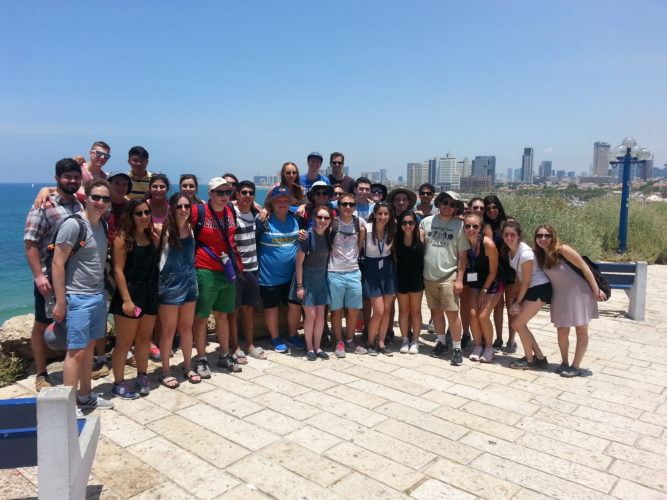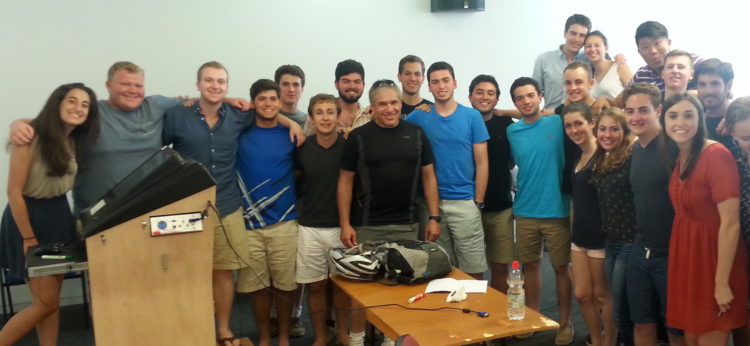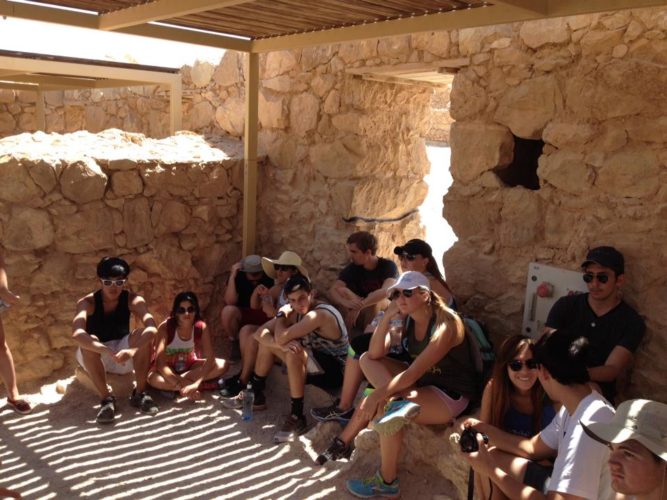We got to the beach bright and early and ready to learn. Today, our classroom was the beach. The conversation started out about the Better Place project and entrepreneur Shai Agassi’s image of a “better place”.
With almost $1 billion in funding and ambitions to replace petroleum-based cars with a network of cheap electrics, Shai Agassi’s Better Place was remarkable even by the standards of world-changing startups. So was its epic failure. A 21st-century cautionary tale. –Fast Company
Since we were on the beach, it was hard to hear everyone and comments continued to be repeated. So we went off the original plan, split into groups and continued to discuss the project. We all took part in the conversation within the smaller groups and discussed the execution and the failures of Shai Agassi’s vision.
Guest blogger: Leana is a sophomore at Brandeis University
I learned a lot about this lesson on the beach and not only about Better Place. We are all here to invest our time to learn about start-ups, Israel, venture capitalists, and more. And especially in startups, nothing ever goes as planned, and you can either give up or find a new way. And here Steve saw a situation what wasn’t working as planned and directed it in another direction.
I usually like to have a plan and stick to it, but that’s not reality. Things change and life takes us in every direction and it’s our turn to go with it and find the best way to move forward. So I look at the beach class as a success, because it was a minor example of curve balls that will be thrown our way. Since we broke up into smaller groups, we had the opportunity to listen and talk with our peers and open our minds to what could have been improved to really make Better Place, a real better place.




 I found the Microsoft Ventures program particularly interesting because it is a program that pairs a startup with a mentor company in order to help the business grow. This semester, I did a presentation on Arch Grants, and had the pleasure of learning about their entrepreneurial competition. Just as Microsoft Ventures aims to foster the entrepreneurial spirit of Israel, Arch Grants aims to do the same for St. Louis. Just as Arch Grants funds a number of companies located in T-Rex, a center for entrepreneurs to collaborate, both Israeli accelerators give different entrepreneurs a physical space to exchange ideas.
I found the Microsoft Ventures program particularly interesting because it is a program that pairs a startup with a mentor company in order to help the business grow. This semester, I did a presentation on Arch Grants, and had the pleasure of learning about their entrepreneurial competition. Just as Microsoft Ventures aims to foster the entrepreneurial spirit of Israel, Arch Grants aims to do the same for St. Louis. Just as Arch Grants funds a number of companies located in T-Rex, a center for entrepreneurs to collaborate, both Israeli accelerators give different entrepreneurs a physical space to exchange ideas.



 Similarly, Rami, from Pitango, charismatically discussed his take on the industry, his personal experience and methods. Rami put the rather large terms we discussed in class into applicable advice that sparked my inspiration. One survival skill that specially stood out was the need to find your weapon. In other words, one needs to find what drives them in order to be successful. Over the next six weeks I am excited to explore this question further and hopefully will leave here knowing what my weapon is.
Similarly, Rami, from Pitango, charismatically discussed his take on the industry, his personal experience and methods. Rami put the rather large terms we discussed in class into applicable advice that sparked my inspiration. One survival skill that specially stood out was the need to find your weapon. In other words, one needs to find what drives them in order to be successful. Over the next six weeks I am excited to explore this question further and hopefully will leave here knowing what my weapon is.

